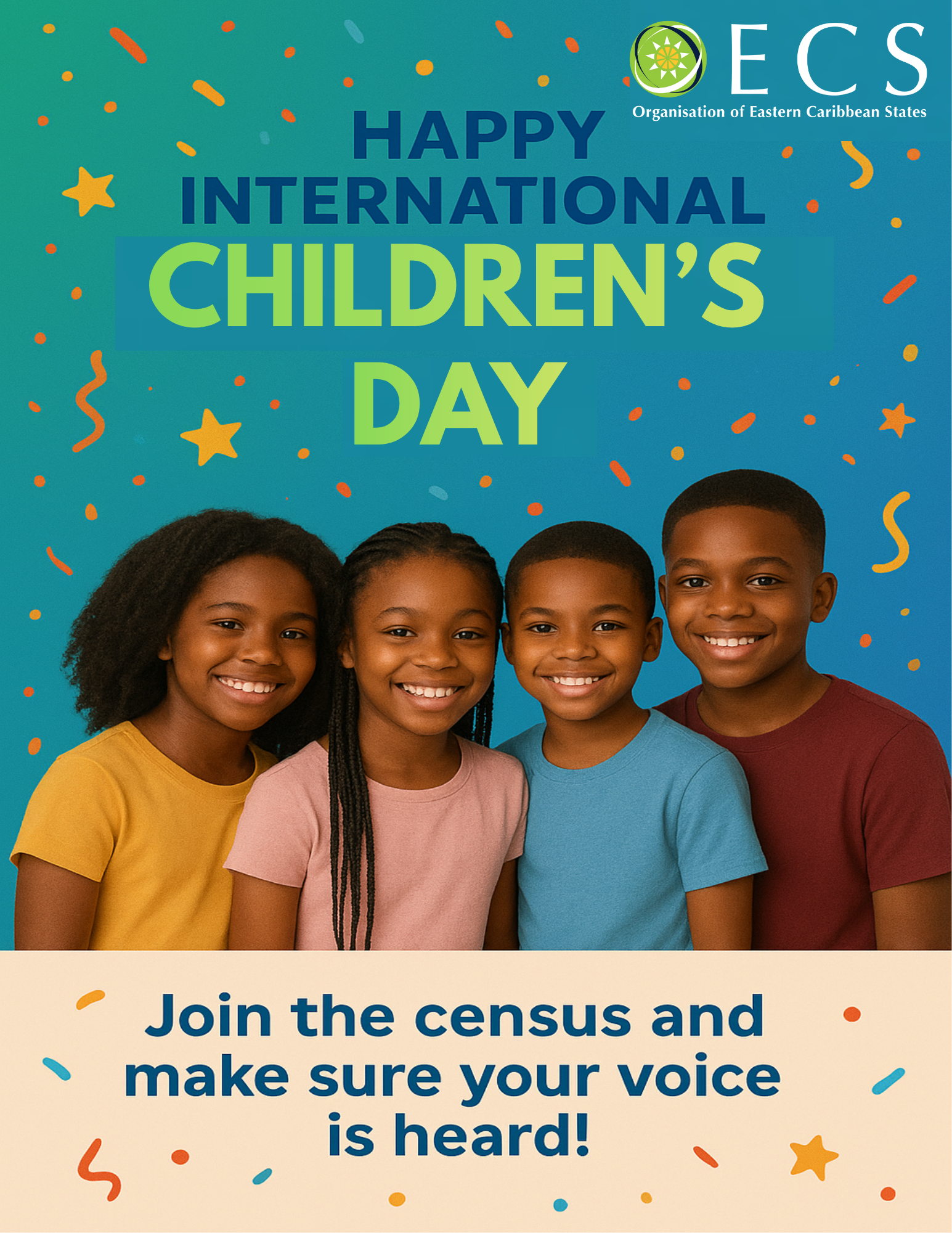OECS Commission Marks International Children’s Day by Championing Student Voice and Future-Shaping Initiatives
OECS MEDIA RELEASE
On the occasion of International Children's Day, the OECS Commission reaffirms its unwavering commitment to securing the rights, protection, and holistic well-being of every child across the OECS region. The Commission celebrates the children of the region as both the beneficiaries of policy and the vital architects of a resilient future.
Foundational Pillars for Child Well-being and Protection
The OECS continues to prioritise a comprehensive agenda for child welfare, anchored in policy and regional cooperation. This approach, delivered through the Human and Social Division of the OECS, integrates critical safeguards and developmental initiatives, fully aligning with and supporting the principles enshrined in the United Nations Convention on the Rights of the Child (UNCRC).
- The OECS Regional Child Policy: The Commission, in partnership with UNICEF, is actively reviewing and advancing the Draft OECS Regional Child Policy. This comprehensive framework guides Member States in strengthening legislative and social support systems to ensure children are protected from harm, appreciated and enabled to achieve their full potential.
- Child Online Protection and Digital Safety: Recognising the evolving landscape of risks, the Commission has developed the OECS Policy and Strategic Framework for Child Online Protection (COP). This critical policy aims to fill legislative gaps and addresses emerging digital threats, such as cyberbullying, exposure to harmful content and data privacy issues, ensuring a secure digital learning environment for all students.
- Empowering children and youth: Through the OECS Youth Empowerment Strategy (OECS YES), the Commission actively engages youth between the ages of 15–29, focusing on key pillars like YES I Matter (Children & Youth Protection), YES I Move (Healthy Lifestyles), and YES I Learn (Education & Training). Engagement initiatives, such as the OECS Youth Advisory Network (YAN) and the U-Report platform (which actively polls over 6,500 youth), ensure that the voices and perspectives of young people inform regional policy and governance. Additionally, past efforts like the Juvenile Justice Reform Project (JJRP) have aimed to develop more rehabilitative child justice systems, including diversion and reintegration programs.
Spotlight on the OECS Student Census: Shaping the Next Decade of Education
This International Children’s Day, the spotlight is firmly placed on the ongoing OECS Student Census on Education Transformation. This crucial exercise, encompassing students from Kindergarten (Grade K) to Form 5 across all English-speaking OECS Member States, is a direct investment in the future of regional education.
The census directly responds to a mandate from the Council of Ministers: Education Caucus to fundamentally place learners at the centre of the OECS's ambitious education transformation agenda. By systematically gathering data on students’ perceptions, challenges, and aspirations regarding curriculum, technology, and their overall learning environment, the OECS is building an evidence-based foundation for policy.
The data collected will directly inform the development of the new 10-year OECS Regional Education Sector Strategy, ensuring that future reforms are authentically responsive to the needs and lived experiences of the youth they are designed to serve. This monumental undertaking reinforces the principle articulated by UNICEF, emphasising that child participation in decisions affecting their lives improves both learning outcomes and engagement.
A Call to Action: Your Voice Shapes Your Future
The OECS Commission issues an urgent call to action to every student in the OECS: Your participation in the ongoing OECS Student Census is essential.
International Children’s Day celebrates your right to be heard and valued. By taking the time to share your perspective in this survey, you are exercising your right to shape your education, your community, and the trajectory of your future.
Participate in the OECS Student Census today and ensure that your voice can shape your future.
Media contact
Malika Thompson-Cenac
OECS Communications Unit
